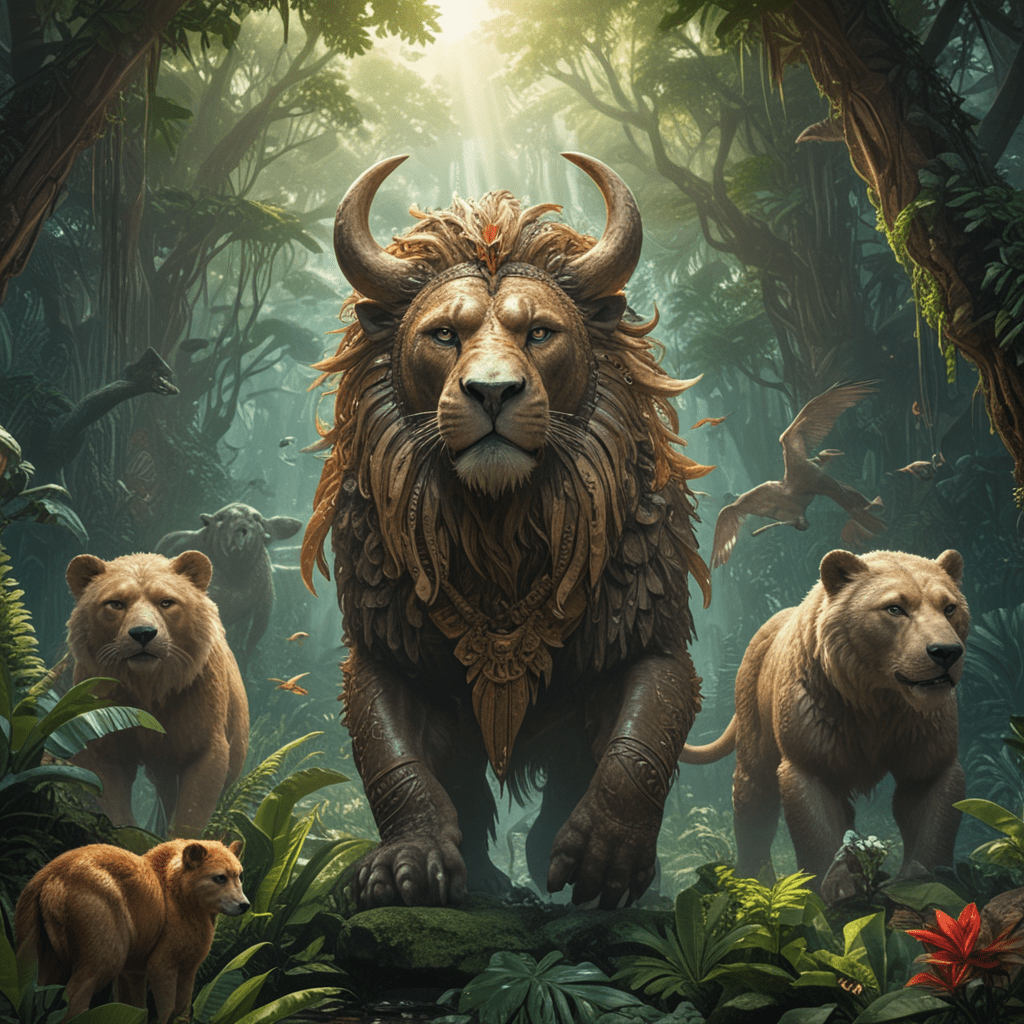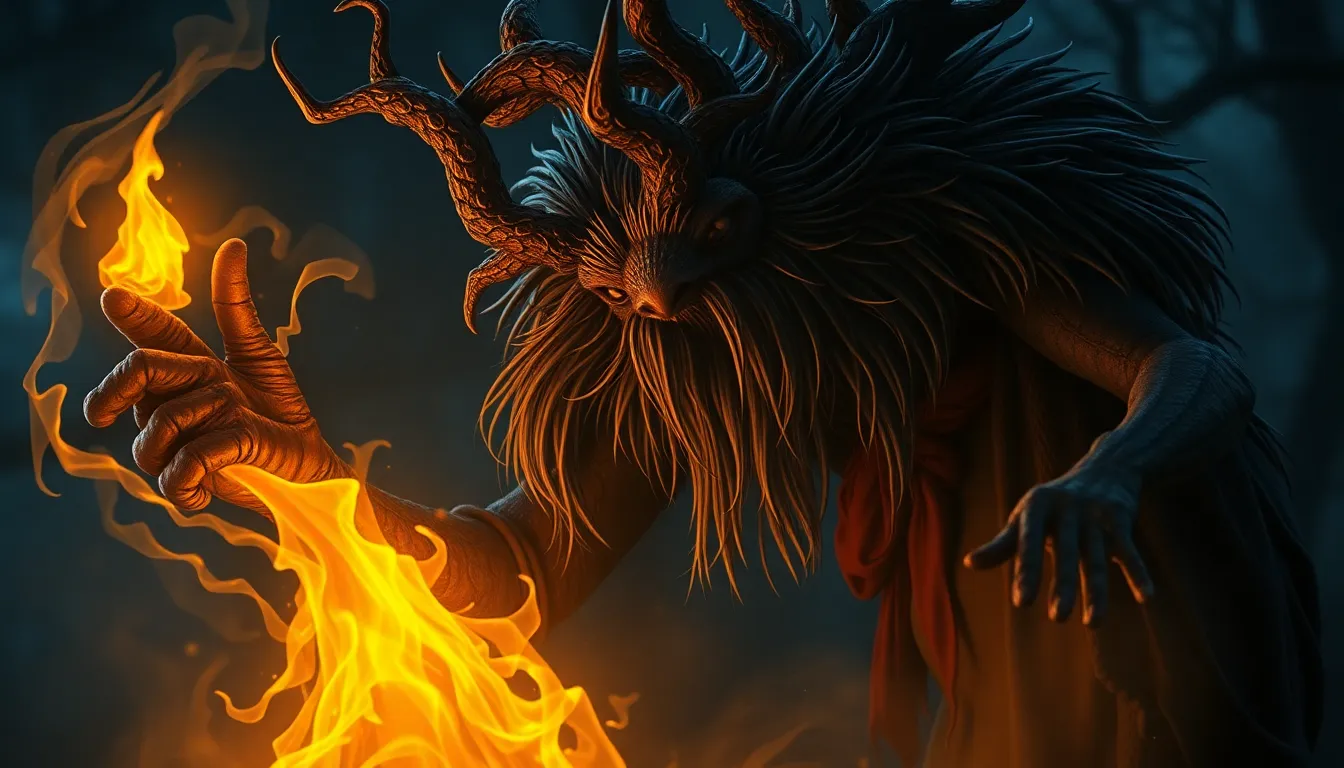Animals and Nature in Polynesian Mythology
1. The Importance of Animals in Polynesian Culture
Animals held a significant place in Polynesian culture, serving as companions, sustenance, and objects of spiritual reverence. They were believed to possess supernatural powers and were often seen as embodiments of gods or ancestors. Animals were integrated into every aspect of Polynesian life, from their art and mythology to their social and religious practices.
2. The Role of Animals in Polynesian Myths and Legends
Polynesian myths and legends abound with animals, each playing a unique and meaningful role. The demigod Maui, for instance, used his magical hook to fish up islands from the sea with the help of his animal companions. Animals were also often seen as guardians or messengers of the gods, as in the case of the Hawaiian sea turtle, Honu, who is said to carry the prayers of the people to the heavens.
3. The Symbolic Meaning of Animals in Polynesian Mythology
Animals in Polynesian mythology were imbued with rich symbolic meanings. Birds, for example, were often associated with freedom and spirituality, while sharks represented strength and power. The pig, a common animal in Polynesian society, symbolized fertility and abundance. These symbolic associations influenced the way Polynesians interacted with and regarded animals in their daily lives.
4. The Supernatural Powers of Animals in Polynesian Mythology
Many animals in Polynesian mythology possessed supernatural abilities. The gecko, for instance, was believed to have the power to cure illnesses. The octopus, a creature of the sea, was said to possess the ability to transform into a human form. These supernatural powers added to the mystique surrounding animals and reinforced their significance in Polynesian culture.
5. The Relationship between Animals and Humans in Polynesian Mythology
The relationship between animals and humans in Polynesian mythology was multifaceted. Animals were often seen as companions and allies, assisting humans in their quests and endeavors. However, animals could also be dangerous and unpredictable, posing a threat to human life. This complex relationship reflected the interconnectedness of all living creatures in the Polynesian worldview.
6. The Role of Nature in Polynesian Mythology
Just like animals, nature played a central role in Polynesian mythology. The islands, the sea, and the sky were all imbued with sacred significance and were believed to be inhabited by spirits and deities. Nature was often seen as a manifestation of the gods' power and a source of sustenance and renewal.
7. The Symbolic Meaning of Nature in Polynesian Mythology
Different elements of nature carried deep symbolic meanings in Polynesian mythology. The ocean, for instance, represented both life and death, as it was a source of food and transportation, but also a perilous force to be respected. Mountains were often seen as sacred places, home to the gods and ancestors. These symbolic associations shaped the way Polynesians interacted with their environment.
8. The Supernatural Powers of Nature in Polynesian Mythology
In Polynesian mythology, nature possessed supernatural powers. The sun, moon, and stars were believed to be divine beings, influencing human affairs. The wind was said to carry the voices of the gods, while the rain was seen as a gift from the heavens. These supernatural powers added to the awe and reverence with which Polynesians regarded the natural world.
9. The Relationship between Nature and Humans in Polynesian Mythology
The relationship between nature and humans in Polynesian mythology was closely intertwined. Humans were seen as stewards of the land, responsible for its well-being. In return, nature provided sustenance and shelter for human communities. This reciprocal relationship emphasized the importance of living in harmony with the natural world.
10. The Influence of Animals and Nature on Polynesian Society
Animals and nature had a profound influence on Polynesian society. They shaped cultural practices, influenced artistic expression, and guided navigation and exploration. The reverence for animals and nature fostered a deep respect for the environment and a sustainable approach to living. This connection with the natural world continues to be an integral part of Polynesian identity today.
FAQ
1. What is the significance of animals in Polynesian mythology?
Animals were revered as companions, sustenance, and embodiments of gods or ancestors, playing vital roles in myths and legends.
2. How were animals viewed in Polynesian culture?
Animals were seen as possessing supernatural powers and were often integrated into art, mythology, and religious practices.
3. What role did nature play in Polynesian mythology?
Nature was considered sacred and was believed to be inhabited by spirits and deities. It held deep symbolic meanings and was seen as a manifestation of the gods' power.
4. How were animals and nature interconnected in Polynesian society?
Humans were viewed as stewards of the land, responsible for its well-being, while nature provided sustenance and shelter. This reciprocal relationship fostered a deep respect for the environment.
5. What is the legacy of animals and nature in Polynesian culture today?
The reverence for animals and nature continues to influence cultural practices, artistic expression, and emphasizes the importance of living in harmony with the natural world.


